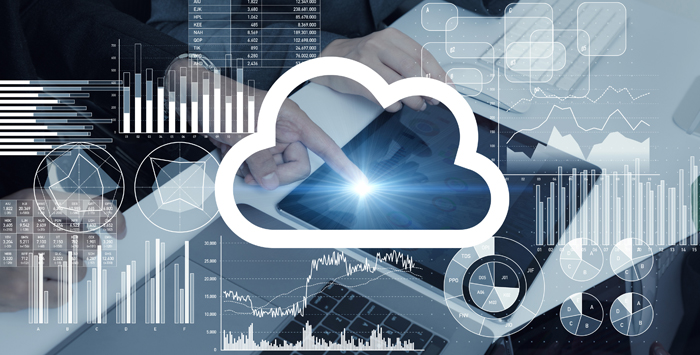Modern cloud-based ERP systems can connect businesses that are seeking to innovate and grow. There’s no question about the relevance and importance of implementing this technology — in fact, Gartner coined computing in 2019 as a “slope of enlightenment” stage.
The goal for companies is to improve operations, accountability, and customer experience. Modern ERP software solutions help employees work smarter, improving efficiency and visibility across the organization; there are many areas that benefit, including, purchasing and sourcing, manufacturing, and inventory control, as well as sales and marketing, distribution, and customer relationship management.
Cloud computing infrastructure and applications leads the way in IT spending, according to Gartner, with an overall $3.77 trillion global information technology spend. Globally, 72% of companies across all industries will adopt cloud computing by 2022, according to the latest Future of Jobs Survey by the World Economic Forum (WEF).
Business leaders who are looking for the ideal solution to implement the latest cloud-based ERP solutions should consider the following:
Can it Grow?
When selecting an ERP system, it’s vital to weigh if it can meet the needs of the organization. Scalability and flexibility are essential — make sure the solution can grow as the business grows. This is the most important step a company can take to ensure it is investing in the most appropriate solution.
An organization should build or revisit its goals to ensure the strategy for the ERP system supports its business objectives. First, look to the present time, then assess where the company sees itself in the future. Digital strategy needs to reflect and meet the needs of real-time objectives, as well as those that the company has set as a whole for the near- and long-term.
The best bet for growth is a cloud-based ERP solution. As the company matures, so can its capabilities. Beware of on-premise legacy systems marketed to look like the real deal; true cloud solutions will have capability to integrate with emerging technologies.
Learn more in How to Know if You are Ready to Switch Accounting Software.
Anywhere, 24/7
Remote work is alive and on the rise. Businesses are shuffling to keep up with the ways that people are now working. Being able to access workflows and data wherever and whenever is needed to meet the demands of the modern-day business ecosystem. It’s expected that employees can log into a company’s systems as needed.
Today, anything less is failing to meet expectation. When mobile efficiency is lacking, so are profitable gains for the business.
Dashboards are available to both leadership and employees, on the departmental and role level. They offer a unique view, with far reaching capabilities that offer valuable insights into all areas of the entity.
Recommendations and Testimonials
Those looking to invest in an ERP system should make sure to do their homework. Ask potential vendors for companies that have most recently implemented their software, specifically businesses within the same or similar industry.
Transparency is key. Ask for both best and worst of experiences, and don’t hesitate to ask to visit their site and witness the product in action. It helps to see how the software reacts to a real-life scenario!
Ease of Use
An system with User Experience (UX) in mind will be more easily adopted by staff across the organization. The easier it is to use, the better. Functional areas across the business will be working in the system daily, inputting data that relates to the department.
Each role requires specific data that is customizable for each function, so only the most relevant information is presented — users should be able to drill down for a more finite view. Companies crossing borders require region-specific data and units of measurement.
The right ERP will meet a company’s needs in a simple accessible way. A smoothly running system avoids any workarounds and won’t be needed — those who introduce them are flying a red flag.
What it Costs
Don’t get caught up in upfront costs — make sure to look at the whole picture. A company migrating to the cloud must rationalize the long-term implementation costs and the total cost of ownership (TCO). Flexible licensing can keep costs down as a company evolves and the best ERP vendors offer affordable solutions.
Embracing innovation is about change management and an ERP system should be set up to mirror the future of a business and its necessary processes. Companies evolve and so should an ERP solution.
Getting Started
Thinking about implementing a cloud-based ERP system? Designed specifically for small to mid-size distributors and manufacturers, Acumatica Cloud ERP combines proven business logic developed over 10 years with new, cutting-edge technology to help you streamline your operations like never before. Contact us to learn more about how to utilize IT managed services to meet business goals!
Learn more in How to Select the Best ERP Solution for Your Organization.

